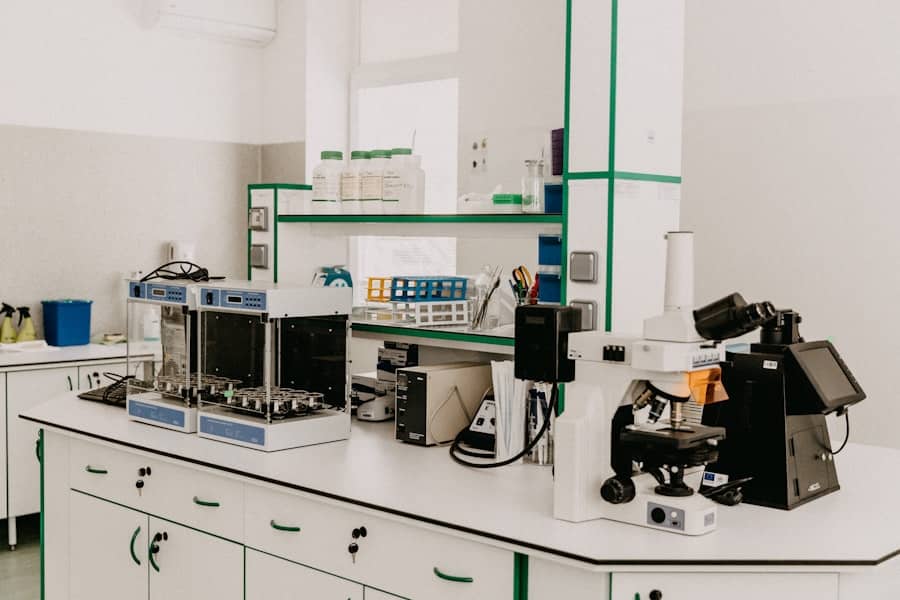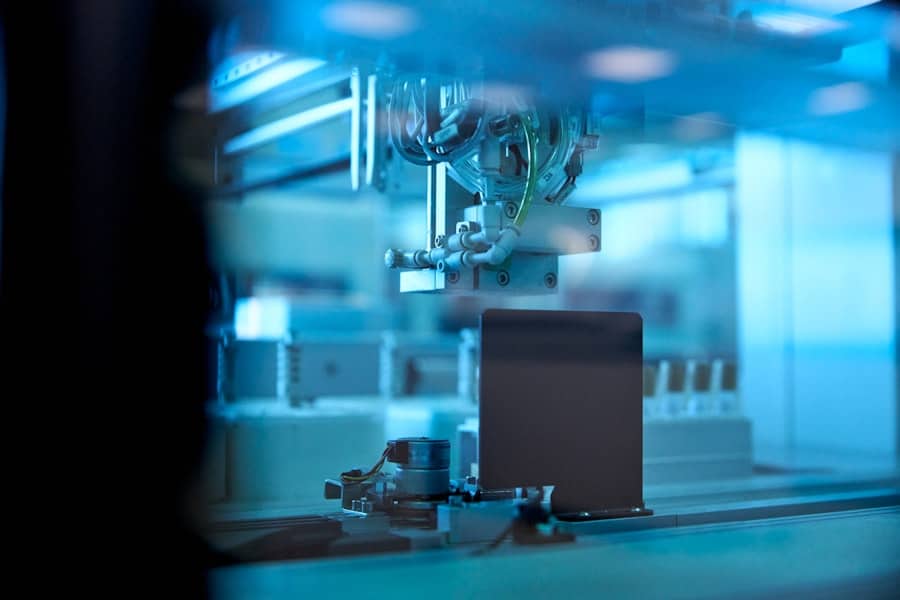As you delve into the world of pharmaceuticals, you may find yourself captivated by the transformative power of artificial intelligence (AI) in drug discovery. This innovative technology is reshaping the landscape of medicine, offering unprecedented opportunities to enhance the efficiency and effectiveness of developing new drugs. The traditional methods of drug discovery, often characterized by lengthy timelines and high costs, are being revolutionized by AI’s ability to analyze vast datasets, identify patterns, and predict outcomes with remarkable accuracy.
In this era of rapid technological advancement, AI stands at the forefront, promising to streamline processes and bring forth novel therapies that could change lives. The integration of AI into drug discovery is not merely a trend; it represents a paradigm shift in how researchers approach the complex challenges of developing new medications. By harnessing machine learning algorithms and data analytics, scientists can now sift through enormous amounts of biological and chemical data, uncovering insights that were previously hidden.
This capability not only accelerates the identification of potential drug candidates but also enhances the precision with which these candidates can be evaluated. As you explore this fascinating intersection of technology and healthcare, you will discover how AI is poised to redefine the future of medicine.
Key Takeaways
- Artificial intelligence (AI) is revolutionizing drug discovery by accelerating the identification of potential drug targets and speeding up the drug screening and design process.
- AI is enabling the analysis of large datasets and the prediction of drug-target interactions, leading to more efficient and cost-effective drug development.
- AI is transforming clinical trials by improving patient selection, optimizing trial design, and predicting patient outcomes, ultimately expediting the drug development process.
- Despite its potential, AI-driven drug discovery faces challenges such as data quality, interpretability of AI models, and regulatory hurdles that need to be addressed for widespread adoption.
- Ethical considerations around data privacy, bias in AI algorithms, and regulatory compliance must be carefully navigated in AI-driven drug discovery to ensure patient safety and public trust.
The Role of Artificial Intelligence in Identifying Drug Targets
When it comes to drug discovery, identifying the right targets is crucial for developing effective therapies. Here, AI plays a pivotal role by enabling researchers to pinpoint potential drug targets with greater accuracy and speed. By analyzing biological data from various sources, including genomic, proteomic, and metabolomic information, AI algorithms can identify patterns that suggest which proteins or genes may be implicated in specific diseases.
This data-driven approach allows for a more informed selection of targets, reducing the risk of pursuing ineffective or irrelevant pathways. Moreover, AI’s ability to integrate diverse datasets enhances its predictive capabilities. For instance, machine learning models can analyze historical data from previous drug development efforts to identify successful target-drug interactions.
This not only streamlines the target identification process but also provides insights into the mechanisms of action for potential drugs. As you consider the implications of these advancements, it becomes clear that AI is not just a tool for researchers; it is a powerful ally in the quest for new treatments that can address unmet medical needs.
How Artificial Intelligence is Accelerating Drug Screening and Design

The process of drug screening and design has traditionally been a labor-intensive endeavor, often requiring extensive laboratory work and time-consuming trials. However, with the advent of AI, this landscape is changing dramatically. AI algorithms can rapidly analyze chemical compounds and predict their interactions with biological targets, significantly speeding up the screening process.
By employing techniques such as virtual screening and molecular docking simulations, researchers can evaluate thousands of compounds in a fraction of the time it would take using conventional methods. In addition to accelerating screening, AI also enhances the design of new drugs. Through generative design algorithms, AI can propose novel molecular structures that are likely to exhibit desired biological activity.
This creative aspect of AI not only expands the pool of potential drug candidates but also allows for more targeted modifications based on specific therapeutic goals. As you reflect on these advancements, it becomes evident that AI is not merely expediting existing processes; it is fundamentally transforming how drugs are conceived and developed.
The Impact of Artificial Intelligence on Clinical Trials and Drug Development
Clinical trials are a critical phase in drug development, often fraught with challenges related to patient recruitment, data management, and regulatory compliance. Here again, AI emerges as a gamechanger. By leveraging predictive analytics, AI can optimize patient recruitment strategies by identifying suitable candidates based on genetic profiles and medical histories.
This targeted approach not only enhances the likelihood of trial success but also reduces the time and costs associated with recruitment. Furthermore, AI can streamline data collection and analysis during clinical trials. Machine learning algorithms can monitor patient responses in real-time, allowing for adaptive trial designs that can adjust based on interim results.
This flexibility can lead to more efficient trials and faster decision-making regarding a drug’s efficacy and safety. As you consider the implications of these advancements, it becomes clear that AI is not just improving clinical trials; it is reshaping the entire drug development process to be more responsive and efficient.
Overcoming Challenges and Limitations in AI-Driven Drug Discovery
Despite the promising potential of AI in drug discovery, several challenges and limitations must be addressed to fully realize its benefits. One significant hurdle is the quality and availability of data. AI algorithms rely heavily on large datasets to learn and make predictions; however, if the data is incomplete or biased, it can lead to inaccurate results.
Ensuring that datasets are comprehensive and representative is essential for training reliable models. Another challenge lies in the interpretability of AI models. While machine learning algorithms can produce highly accurate predictions, understanding how these predictions are made can be complex.
This lack of transparency can pose difficulties in gaining regulatory approval for new drugs, as regulatory bodies often require clear explanations of how decisions are reached. As you navigate these challenges, it becomes evident that collaboration between data scientists, biologists, and regulatory experts will be crucial in overcoming these obstacles and ensuring that AI-driven drug discovery reaches its full potential.
Ethical and Regulatory Considerations in AI-Driven Drug Discovery

As you explore the integration of AI into drug discovery, ethical and regulatory considerations come to the forefront. The use of AI raises important questions about data privacy, informed consent, and potential biases in algorithms. Ensuring that patient data is handled responsibly and ethically is paramount in maintaining public trust in medical research.
Additionally, addressing biases in AI models is essential to prevent disparities in healthcare outcomes. Regulatory bodies are also grappling with how to adapt existing frameworks to accommodate the rapid advancements in AI technology. Establishing guidelines that ensure safety and efficacy while fostering innovation will be critical as AI continues to play a larger role in drug discovery.
As you reflect on these ethical considerations, it becomes clear that a balanced approach is necessary—one that prioritizes patient welfare while embracing the transformative potential of AI.
Future Trends and Opportunities in Artificial Intelligence for Drug Discovery
Looking ahead, the future of AI in drug discovery is filled with exciting trends and opportunities. One notable trend is the increasing collaboration between pharmaceutical companies and technology firms specializing in AI. These partnerships are likely to yield innovative solutions that combine domain expertise with cutting-edge technology, leading to more effective drug development processes.
Additionally, advancements in natural language processing (NLP) are expected to enhance literature mining capabilities, allowing researchers to extract valuable insights from scientific publications at an unprecedented scale. This could lead to faster identification of emerging trends and potential therapeutic targets. As you consider these future trends, it becomes evident that the synergy between AI and drug discovery will continue to evolve, opening new avenues for research and development.
The Potential of AI as a Gamechanger in Drug Discovery
In conclusion, as you reflect on the transformative impact of artificial intelligence on drug discovery, it is clear that this technology holds immense potential as a gamechanger in the field of medicine. From identifying drug targets to accelerating screening processes and optimizing clinical trials, AI is reshaping every aspect of drug development. While challenges remain—such as data quality issues and ethical considerations—the opportunities presented by AI are too significant to ignore.
As you look toward the future, it is essential to embrace the collaborative spirit that will drive innovation in this space. By fostering partnerships between researchers, technologists, and regulatory bodies, we can navigate the complexities of AI-driven drug discovery while ensuring that patient welfare remains at the forefront. Ultimately, your engagement with this evolving landscape will play a crucial role in harnessing the full potential of artificial intelligence to improve health outcomes worldwide.
Artificial Intelligence has been making significant strides in various fields, including drug discovery. One related article that delves into the potential of AI in humanitarian aid is AI in Humanitarian Aid: Using Technology to Assist Disaster Relief. This article explores how AI can be utilized to improve disaster response and relief efforts, showcasing the versatility and impact of this technology in different sectors.
FAQs
What is artificial intelligence (AI) in the context of drug discovery?
Artificial intelligence (AI) in drug discovery refers to the use of advanced computational algorithms and machine learning techniques to analyze large datasets and identify potential drug candidates, predict their properties, and optimize their design.
How is AI revolutionizing drug discovery?
AI is revolutionizing drug discovery by significantly accelerating the process of identifying and developing new drugs. It can analyze vast amounts of biological and chemical data, identify patterns, and make predictions that would be impossible for humans to achieve in a reasonable timeframe.
What are the specific applications of AI in drug discovery?
AI is used in drug discovery for tasks such as target identification, lead compound optimization, predictive toxicology, and drug repurposing. It can also help in virtual screening of compounds, predicting drug-drug interactions, and optimizing clinical trial design.
What are the benefits of using AI in drug discovery?
The use of AI in drug discovery can lead to faster and more cost-effective drug development, increased success rates in clinical trials, and the ability to identify novel drug targets and repurpose existing drugs for new indications. It also has the potential to personalize medicine and improve patient outcomes.
What are the challenges and limitations of AI in drug discovery?
Challenges and limitations of AI in drug discovery include the need for high-quality data, potential biases in the algorithms, interpretability of the results, and regulatory and ethical considerations. Additionally, AI models may not always accurately predict real-world outcomes, and there is a need for validation and verification of AI-generated hypotheses.






